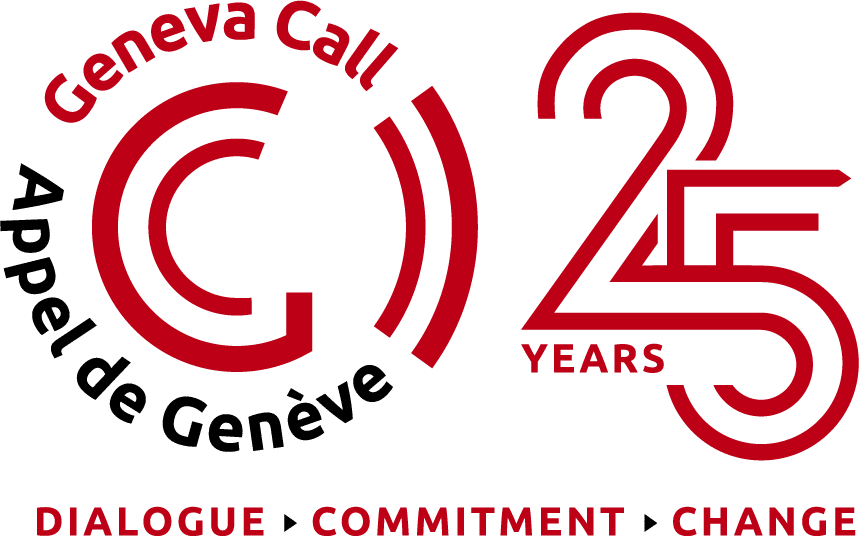Iraq: dialogue on the protection of civilians with one of the main armed actors, the Popular Mobilization Forces
25 March 2017
Since January 2016, Geneva Call has been engaging in a humanitarian dialogue with the Popular Mobilization Forces (PMF) on the protection of civilians. With more than 100 000 fighters, the PMF is one of the main fighting forces active in Iraq. The PMF 40 brigades are mainly Shia, but also include Sunni, Christian and Yezidis individuals and battalions. They were created after a call issued by the Grand Ayatollah Al-Sistani – the spiritual leader of Shia in Iraq – to protect Iraqi cities in 2014 from the advance of the Islamic State group. Most of their combatants are former civilians. They are militarily active in Central and Southern Iraq and around Mosul and conduct military operations with the Iraqi Army.
“Although they already have rules in place to protect civilian populations, in particular the 20 rules issued by Ayatollah Sistani in the “Advice and Guidance to Fighters in the Battlefield“, their respect can and must be improved” says Mehmet Balci, Geneva Call’s Head of Region for the Middle East. Several international organizations’ reports mentioned abuses committed against civilians by all armed actors involved in the conflict including the Islamic State group, the Peshmerga, the Iraqi army, the PMF and all security forces.
In 2016, Geneva Call initiated a humanitarian dialogue with several brigades of the PMF and delivered training on the law of armed conflict for more than 200 of their fighters and officers in Bagdhad, Najaf and Kirkuk.
These trainings were a good start but there was a need to deepen the dialogue at the highest level of the PMF as their structure was evolving towards a more centralized organization. “In August 2016, we had the unique opportunity to meet Ayatollah Al-Sistani, the Shia supreme religious leader in Iraq who expressed his full support to our work” says Mehmet Balci, “his support was crucial to strengthen our dialogue with the PMF”.
After this meeting Geneva Call reinforced its dialogue with the PMF leadership, and in October 2016, just after the launch of the Mosul military operations, a delegation of Geneva Call met with some of the top leaders.
On this occasion, the leadership officially announced their decision for a high-level collaboration with Geneva Call on the protection of civilians. “We are aware that violations sometimes occur, and we are ready to work with Geneva Call on that.” stated one of the leaders. Following these meetings, in February 2017, Geneva Call organized a conference in partnership with the Islamic University of Najaf. This university is the first in Iraq to start teaching the law of armed conflict as a subject distinct from human rights.
The event gathered more than 40 participants including 16 representatives from different PMF brigades, religious and community leaders and representatives of international organizations such as UNICEF, the Norwegian Refugee Council and the European Union Humanitarian Aid and Civil Protection.
Over two days, Geneva Call as well as local experts gave presentations on different aspects of the protection of civilians including the conduct of hostilities and the protection of children.
“In Islam, civilians are protected. Islam is not only a religion of peace and compassion but also human ethics” one of the religious leaders at the conference declared. “Participants adopted a set of recommendations to reaffirm their commitments to the main principles of the law of armed conflict but also recommended that PMF facilitate cooperation with Geneva Call”, said Armin Köhli, Geneva Call’s Programme Manager, who did a presentation at the conference. “They named a focal point to coordinate action with humanitarian organizations.”
Geneva Call and the Islamic University in Najaf will continue collaboration to produce guidelines and a code of conduct for the PMF fighters. These documents will explain the main humanitarian rules on the protection of civilians and show how they relate to traditional and religious rules. Training sessions on humanitarian norms for officers and fighters will also continue.

